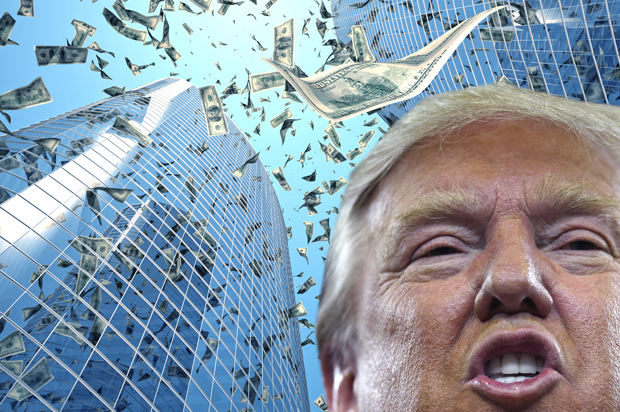President Donald Trump’s tax reform bill may have actually made it easier for companies to save billions of dollars in taxes on the profits they stash overseas.
Thanks to a loophole in the recently passed Republican tax bill, multinational corporations that have stashed their profits overseas will now pay a substantially lower tax rate. As Reuters reports, that money will either be taxed at a 15.5 percent or 8 percent, according to Reuters. Because the benchmark for determining which money falls into which bracket is a company’s foreign cash position — companies will pay a 15.5 percent tax rate on amounts up to the foreign cash position, then 8 percent for anything over that — the trick for clever companies will be to reduce their foreign cash positions.
Prior to the passage of the tax reform bill, repatriation of foreign profits, which total $2.6 trillion, would have been taxed at a 35 percent rate. In the past, companies that stashed their profits overseas could defer paying their taxes as long as the money wasn’t repatriated into the United States. The new law does not continue this deferral but instead tries to incentivize repatriation by establishing the one-time rate of 15.5 percent for cash holdings and 8 percent for investments that are more illiquid.
But as Harvard Law School senior lecturer Stephen Shay explained to Reuters, some multinational companies can now find ways to reduce their cash positions, such as through dividend payments or other legitimate means of distributing the money, thanks to the loophole in the GOP bill.
“This is clearly the result of rushed legislation,” Shay told Reuters.
Ironically, the Republican tax reform bill – which also lowered the corporate tax rate to 21 percent – was sold as a plan to crack down on multinational corporations who avoid paying taxes on their profits based on where their revenue is earned.


